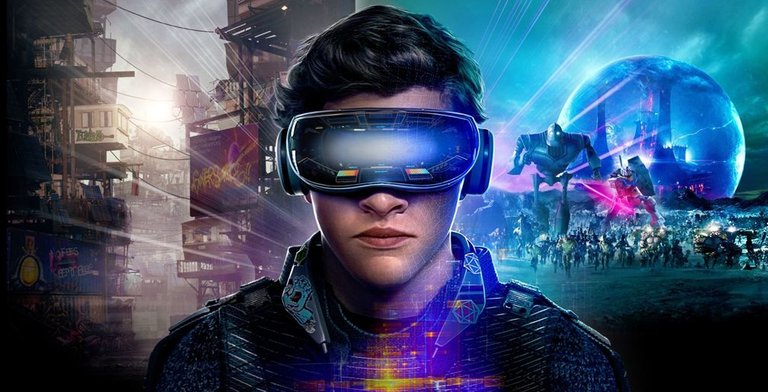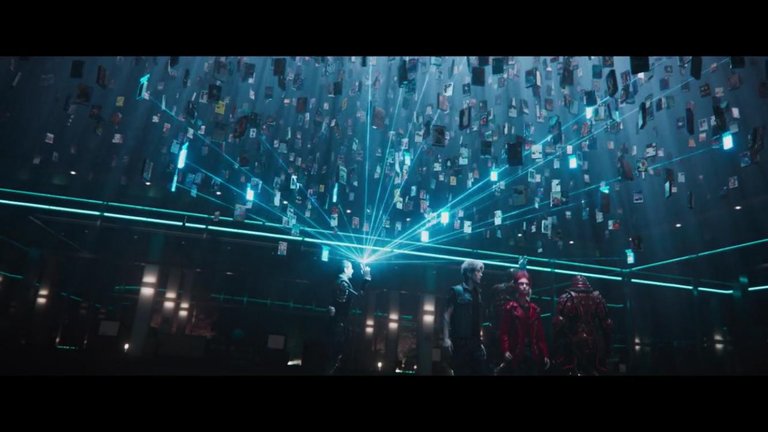The future images of visual reality
No movies are hotter than the Ready Player One now. The Ready Player One takes place in the year 2045, in that time the future world constitutes of virtual reality by the accessible simulator and haptic technology. In that world, people immerse in interactive 3D dynamic views. But what interested me is the critical tracks of the Easter egg that Wade Watts found are all hidden in a "museum". In this perspective, museums are the places that contact the past and future.

This frame in the movie imagines the future looks of the museum. Wade Watts is trying to find the film that tracks of the key. If you have gone to some museums that use visual technology, you may feel a sense of déjà vu.

(A frame of Ready Player One, the documents of films in the museum)

(The ArtLens Wall of the Cleveland Museum of Art)
The biggest multi-touch Wall
There is the picture of the biggest multi-touch wall in the United States In Ohio. The ArtLens Wall of The Cleveland Museum of Art. It is a 40-foot interactive, multi-touch, MicroTile wall, displays in real time all works of art from collections currently on view in the galleries—between 4,200 and 4,500 artworks at any given time.
The ArtLens Wall enables visitors to connect with objects in the collection in a playful and original way, making their visit a more powerful personal experience. Its display transitions every 40 seconds to keep things interesting—grouping artworks by theme and type, such as time period or materials and techniques, as well as by 32 curated views of the collection.
The interactive technologies
Besides, the Cleveland Museums of Art have many other designs to engage the interaction between visitors and museum. In the ArtLens Studio, You can Create your original artwork. The ArtLens exhibition can let you join with masterworks of art and touchscreen-free interactives. The ArtLens Appcan save the artworks you learn about and photos you take during your experience and then map your visit throughout the museum using the app's responsive wayfinding technology.
(The interactive technologies that used in The Cleveland Museum)
The Digital Asset Management system
For the Cleveland Museum of Art, it is a big challenge to contact all the interactive technologies together. To solve this problem, the Cleveland Museum of Art starts to use the Digital Asset Management system The DAM system documents the photographs, videos, and knowledge of all the collections in the Museum. That means the Cleveland Museum of Art completed the digitization of all the collections and put them together to the internet. These interactive technologies are directly taking information from the Digital Assets Management (DAM) system. So that, you can get any information you need from the museum. Any new information about the new collection or move-out collection will immediately show in the ArtLens app and the ArtLens Wall. Also, that means you can feedback your own's suggestion, your tour route, your favorite artworks to the ArtLens app and ArtLens wall, to share the information.
Are museums contacting the past and the future? It may seem like a bit of a stretch, but as museums reposition themselves for our new digital age, they are throwing open their digital doors to a wider audience. Museums are trying to establish a virtual reality world that let us close to the artworks ever before.
100% of the SBD rewards from this #explore1918 post will support the Philadelphia History Initiative @phillyhistory. This crypto-experiment conducted by graduate courses at Temple University's Center for Public History and MLA Program, is exploring history and empowering education. Click here to learn more.
Cites
Information is getting from The Cleveland Museum of Art
我来了
哈哈哈你怎么知道我是中国人的?